
John Constable Painting Reproductions 1 of 4
1776-1837
English Romanticism Painter
John Constable (June 11, 1776 - March 31, 1837) was an English Romantic artist. Born in Suffolk, he is known principally for his landscape paintings of the area surrounding his home - the area of Dedham Vale is now known as "Constable Country".
His most famous paintings include Dedham Vale of 1802 and The Hay Wain of 1821. Although his paintings are now among the most popular and valuable in British art, he was never financially successful, and he did not become a member of the establishment until he was elected to the Royal Academy at the age of 52. He sold more paintings in France than in his native England.
John Constable was born in East Bergholt, a village on the River Stour in Suffolk, to Golding and Ann Constable. His father was a wealthy corn merchant, owner of Flatford Mill and, later, Dedham Mill, and the surrounding countryside was to become the subject of a large proportion of John's art. Although Constable was his parents' second son, his older brother was mentally handicapped and thus John was expected to succeed his father in business. He worked at the corn business after leaving school, but John's younger brother Abram eventually took over the running of the mills.
In his youth, Constable embarked on amateur sketching trips in the surrounding Suffolk countryside. He was introduced to George Beaumont, a collector, who showed him his prized Hagar and the Angel by Claude Lorrain. This inspired Constable. Later, while visiting relatives in Middlesex, he was introduced to John Thomas Smith, a professional artist. Smith advised him on painting, but he also urged Constable to enter his father's business rather than take up art professionally.
In 1799, Constable persuaded his father to let him pursue art, and Golding even gave him a small allowance. Entering the Royal Academy Schools as a probationer, he attended life classes and anatomical dissections as well as studying and copying Old Masters. Among works that particularly inspired him during this period were paintings by Thomas Gainsborough, Claude, Peter Paul Rubens, Annibale Carracci and Jacob van Ruisdael. He also read widely among poetry and sermons, and was later a notably articulate artist. By 1803 he was exhibiting paintings at the Royal Academy.
In 1802 he refused the position of drawing master at Great Marlow Military College, a move which Benjamin West (then master of the RA) counselled would mean the end of his career. Constable's usual subjects, scenes of ordinary daily life, were unfashionable in an age that looked for more romantic visions of wild landscapes and ruins. In order to make ends meet he took up portraiture, which he found dull work - although he executed many fine portraits. He also painted occasional religious pictures, but John Walker comments, "Constable's incapacity as a religious painter cannot be overstated."
Around this time he fell in love with Maria Bicknell, whom he had known for nine years from when they were both children. Maria's grandfather, Dr Rhudde, was rector of East Bergholt and thought the Constables beneath him. He opposed any engagement, threatening Maria's disinheritance. Maria's father, Charles Bicknell, was reluctant to see Maria throw away this inheritance. Even Golding and Ann Constable, while approving the match, held out no prospect of supporting the marriage until Constable was financially secure, and Maria pointed out that a penniless marriage would detract from any chances John had of making a career in painting.
Constable's parents both died in quick succession, and so in 1816 John suddenly inherited a fifth share in the family business. This persuaded him to marry at last, although career considerations apparently led him to attempt to put off the wedding still further.
Although he had scraped an income from painting, it was not until 1819 that he sold his first important canvas, The White Horse. He was elected an Associate of the Royal Academy that year, and in 1821 he showed The Hay Wain (a view from Flatford Mill) at the Academy's exhibition. Théodore Géricault was visiting London where he saw The Hay Wain, and he was soon praising Constable on his return to Paris. A Paris dealer, John Arrowsmith, bought four paintings, including The Hay Wain which was exhibited at the Paris Salon of 1824, winning a gold medal. In his lifetime Constable was to sell only 20 paintings in England, but in France he sold more than 20 in just a few years. Nevertheless, Constable refused all invitations to travel internationally to promote his work, and wrote, "I would rather be a poor man [in England] than a rich man abroad." Nevertheless, Constable's influence on subsequent French painting was considerable, particularly on Eugène Delacroix and the impressionists. In 1825, perhaps due partly to growing domestic pressures, his wife's illness, and the harassment of numerous outstanding commissions, he quarrelled terminally with Arrowsmith, and thus lost his French outlet.
In November 1828 Maria died of Tuberculosis. Constable, intensely saddened by this loss, thereafter always dressed in black. He found little consolation in being elected to the Royal Academy in the following February, at the age of 52. He cared for his seven children alone for the rest of his life. Shortly before her death, Maria's father had died leaving her £20,000. Constable speculated disastrously with this money, paying for the engraving of several mezzotints of some of his landscapes ready for a publication. He was hesitant and indecisive, nearly fell out with his engraver, and even when the folios were published Constable could not interest enough subscribers.
In 1831 he was appointed Visitor at the RA, and seems to have been popular with the students. He also began to deliver public lectures on the history of landscape painting, which were attended by distinguished audiences. He was invited to deliver a series of lectures on the subject at the Royal Institution. His thesis was threefold: firstly, landscape painting is scientific as well as poetic; secondly, the imagination cannot alone produce art which is to bear comparison with reality; and thirdly, no great painter was ever self-taught. He also later spoke against the new Gothic Revival movement (which he considered mere "imitation").
In 1832 Constable met the brewer George Constable (no relation) of Arundel, and he praised the landscape surrounding Arundel on his visits there in 1834 and 1835. He also visited Petworth House, home of the patron of the arts Lord Egremont, in 1834.
In 1835 his last lecture to the students of the RA was cheered enthusiastically. He died on the night of the 31st March, apparently of indigestion.
Art
Constable is known for his landscape paintings, now exceedingly popular examples of British art, though he only sold 20 paintings in England during his lifetime and was not elected to the Royal Academy until he was 52, just 8 years before his death.
Constable painted many full-scale preliminary sketches of his landscapes. These large sketches, with their free and vigorous brushwork were revolutionary at the time and they continue to interest artists, scholars and the general public. This practice, possibly more than any other aspect of Constable's work, establishes him as an avant-garde painter. These large scale oil-sketches demonstrated that landscape painting could be taken in a totally new direction. If one examines the oil sketches there is a vigour and expressiveness not found in the more finished paintings of the same subject. Examples are the two "Leaping Horses" and "The Haywain". In addition to the full-scale oil-sketches Constable also completed numerous studies of clouds and other landscapes. In the sky studies Constable made notes of the prevailing weather conditions, direction of light and time of day. These paintings were done in the open air and were the first time an artist had worked in oils directly from the subject matter. To convey the effects of light and movement Constable used broken brushstrokes, often in small touches,which he scumbled over the top of other passages. These areas were light in hue and gave an impression of sparkling light enveloping the entire landscape. At the time critics and artists made complaints about Constable's "snow"! These techniques, however, had a huge influence on Delacroix, the Barbizon School of Painting and on the later painters of the French Impressionists movement such as Monet, Sisley and Renoir.
His most famous paintings include Dedham Vale of 1802 and The Hay Wain of 1821. Although his paintings are now among the most popular and valuable in British art, he was never financially successful, and he did not become a member of the establishment until he was elected to the Royal Academy at the age of 52. He sold more paintings in France than in his native England.
John Constable was born in East Bergholt, a village on the River Stour in Suffolk, to Golding and Ann Constable. His father was a wealthy corn merchant, owner of Flatford Mill and, later, Dedham Mill, and the surrounding countryside was to become the subject of a large proportion of John's art. Although Constable was his parents' second son, his older brother was mentally handicapped and thus John was expected to succeed his father in business. He worked at the corn business after leaving school, but John's younger brother Abram eventually took over the running of the mills.
In his youth, Constable embarked on amateur sketching trips in the surrounding Suffolk countryside. He was introduced to George Beaumont, a collector, who showed him his prized Hagar and the Angel by Claude Lorrain. This inspired Constable. Later, while visiting relatives in Middlesex, he was introduced to John Thomas Smith, a professional artist. Smith advised him on painting, but he also urged Constable to enter his father's business rather than take up art professionally.
In 1799, Constable persuaded his father to let him pursue art, and Golding even gave him a small allowance. Entering the Royal Academy Schools as a probationer, he attended life classes and anatomical dissections as well as studying and copying Old Masters. Among works that particularly inspired him during this period were paintings by Thomas Gainsborough, Claude, Peter Paul Rubens, Annibale Carracci and Jacob van Ruisdael. He also read widely among poetry and sermons, and was later a notably articulate artist. By 1803 he was exhibiting paintings at the Royal Academy.
In 1802 he refused the position of drawing master at Great Marlow Military College, a move which Benjamin West (then master of the RA) counselled would mean the end of his career. Constable's usual subjects, scenes of ordinary daily life, were unfashionable in an age that looked for more romantic visions of wild landscapes and ruins. In order to make ends meet he took up portraiture, which he found dull work - although he executed many fine portraits. He also painted occasional religious pictures, but John Walker comments, "Constable's incapacity as a religious painter cannot be overstated."
Around this time he fell in love with Maria Bicknell, whom he had known for nine years from when they were both children. Maria's grandfather, Dr Rhudde, was rector of East Bergholt and thought the Constables beneath him. He opposed any engagement, threatening Maria's disinheritance. Maria's father, Charles Bicknell, was reluctant to see Maria throw away this inheritance. Even Golding and Ann Constable, while approving the match, held out no prospect of supporting the marriage until Constable was financially secure, and Maria pointed out that a penniless marriage would detract from any chances John had of making a career in painting.
Constable's parents both died in quick succession, and so in 1816 John suddenly inherited a fifth share in the family business. This persuaded him to marry at last, although career considerations apparently led him to attempt to put off the wedding still further.
Although he had scraped an income from painting, it was not until 1819 that he sold his first important canvas, The White Horse. He was elected an Associate of the Royal Academy that year, and in 1821 he showed The Hay Wain (a view from Flatford Mill) at the Academy's exhibition. Théodore Géricault was visiting London where he saw The Hay Wain, and he was soon praising Constable on his return to Paris. A Paris dealer, John Arrowsmith, bought four paintings, including The Hay Wain which was exhibited at the Paris Salon of 1824, winning a gold medal. In his lifetime Constable was to sell only 20 paintings in England, but in France he sold more than 20 in just a few years. Nevertheless, Constable refused all invitations to travel internationally to promote his work, and wrote, "I would rather be a poor man [in England] than a rich man abroad." Nevertheless, Constable's influence on subsequent French painting was considerable, particularly on Eugène Delacroix and the impressionists. In 1825, perhaps due partly to growing domestic pressures, his wife's illness, and the harassment of numerous outstanding commissions, he quarrelled terminally with Arrowsmith, and thus lost his French outlet.
In November 1828 Maria died of Tuberculosis. Constable, intensely saddened by this loss, thereafter always dressed in black. He found little consolation in being elected to the Royal Academy in the following February, at the age of 52. He cared for his seven children alone for the rest of his life. Shortly before her death, Maria's father had died leaving her £20,000. Constable speculated disastrously with this money, paying for the engraving of several mezzotints of some of his landscapes ready for a publication. He was hesitant and indecisive, nearly fell out with his engraver, and even when the folios were published Constable could not interest enough subscribers.
In 1831 he was appointed Visitor at the RA, and seems to have been popular with the students. He also began to deliver public lectures on the history of landscape painting, which were attended by distinguished audiences. He was invited to deliver a series of lectures on the subject at the Royal Institution. His thesis was threefold: firstly, landscape painting is scientific as well as poetic; secondly, the imagination cannot alone produce art which is to bear comparison with reality; and thirdly, no great painter was ever self-taught. He also later spoke against the new Gothic Revival movement (which he considered mere "imitation").
In 1832 Constable met the brewer George Constable (no relation) of Arundel, and he praised the landscape surrounding Arundel on his visits there in 1834 and 1835. He also visited Petworth House, home of the patron of the arts Lord Egremont, in 1834.
In 1835 his last lecture to the students of the RA was cheered enthusiastically. He died on the night of the 31st March, apparently of indigestion.
Art
Constable is known for his landscape paintings, now exceedingly popular examples of British art, though he only sold 20 paintings in England during his lifetime and was not elected to the Royal Academy until he was 52, just 8 years before his death.
Constable painted many full-scale preliminary sketches of his landscapes. These large sketches, with their free and vigorous brushwork were revolutionary at the time and they continue to interest artists, scholars and the general public. This practice, possibly more than any other aspect of Constable's work, establishes him as an avant-garde painter. These large scale oil-sketches demonstrated that landscape painting could be taken in a totally new direction. If one examines the oil sketches there is a vigour and expressiveness not found in the more finished paintings of the same subject. Examples are the two "Leaping Horses" and "The Haywain". In addition to the full-scale oil-sketches Constable also completed numerous studies of clouds and other landscapes. In the sky studies Constable made notes of the prevailing weather conditions, direction of light and time of day. These paintings were done in the open air and were the first time an artist had worked in oils directly from the subject matter. To convey the effects of light and movement Constable used broken brushstrokes, often in small touches,which he scumbled over the top of other passages. These areas were light in hue and gave an impression of sparkling light enveloping the entire landscape. At the time critics and artists made complaints about Constable's "snow"! These techniques, however, had a huge influence on Delacroix, the Barbizon School of Painting and on the later painters of the French Impressionists movement such as Monet, Sisley and Renoir.
80 Constable Paintings
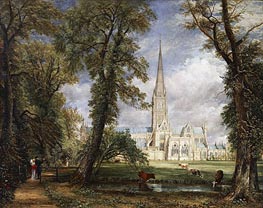
Salisbury Cathedral from the Bishop's Garden 1826
Oil Painting
$2265
$2265
Canvas Print
$65.33
$65.33
SKU: COJ-2888
John Constable
Original Size: 88.9 x 112.4 cm
Frick Collection, New York, USA
John Constable
Original Size: 88.9 x 112.4 cm
Frick Collection, New York, USA
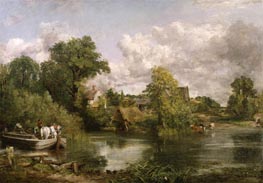
The White Horse 1819
Oil Painting
$1450
$1450
Canvas Print
$57.20
$57.20
SKU: COJ-2889
John Constable
Original Size: 131.4 x 188.3 cm
Frick Collection, New York, USA
John Constable
Original Size: 131.4 x 188.3 cm
Frick Collection, New York, USA
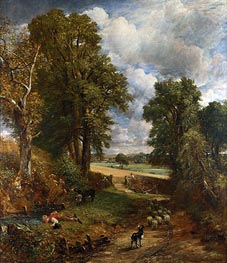
The Cornfield 1826
Oil Painting
$1289
$1289
Canvas Print
$71.64
$71.64
SKU: COJ-2890
John Constable
Original Size: 143 x 122 cm
National Gallery, London, UK
John Constable
Original Size: 143 x 122 cm
National Gallery, London, UK
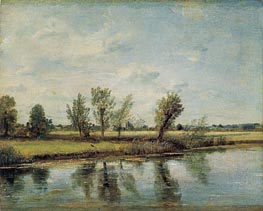
Watermeadows near Salisbury 1829
Oil Painting
$547
$547
Canvas Print
$69.16
$69.16
SKU: COJ-2891
John Constable
Original Size: 45.7 x 55.3 cm
Victoria and Albert Museum, London, UK
John Constable
Original Size: 45.7 x 55.3 cm
Victoria and Albert Museum, London, UK
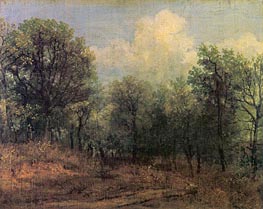
A Wood c.1802
Oil Painting
$462
$462
Canvas Print
$54.62
$54.62
SKU: COJ-2892
John Constable
Original Size: 34.3 x 43.2 cm
Victoria and Albert Museum, London, UK
John Constable
Original Size: 34.3 x 43.2 cm
Victoria and Albert Museum, London, UK
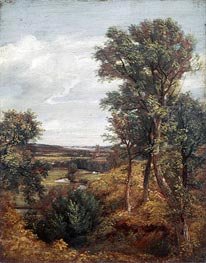
Dedham Vale 1802
Oil Painting
$462
$462
Canvas Print
$54.62
$54.62
SKU: COJ-2893
John Constable
Original Size: 43.5 x 34.4 cm
Victoria and Albert Museum, London, UK
John Constable
Original Size: 43.5 x 34.4 cm
Victoria and Albert Museum, London, UK
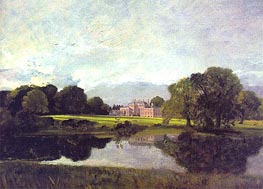
Malvern Hall, Warwickshire 1809
Oil Painting
$1047
$1047
Canvas Print
$54.62
$54.62
SKU: COJ-2894
John Constable
Original Size: 51.4 x 76.8 cm
Tate Gallery, London, UK
John Constable
Original Size: 51.4 x 76.8 cm
Tate Gallery, London, UK
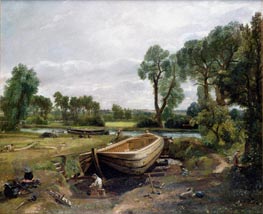
Boat Building near Flatford Mill 1815
Oil Painting
$1084
$1084
Canvas Print
$69.39
$69.39
SKU: COJ-2895
John Constable
Original Size: 50.8 x 61.6 cm
Victoria and Albert Museum, London, UK
John Constable
Original Size: 50.8 x 61.6 cm
Victoria and Albert Museum, London, UK
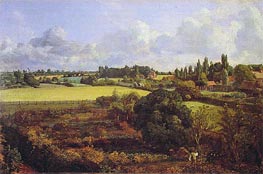
Golding Constable's Kitchen Garden 1815
Oil Painting
$589
$589
SKU: COJ-2896
John Constable
Original Size: unknown
Borough Council Museums and Galleries, Ipswich, UK
John Constable
Original Size: unknown
Borough Council Museums and Galleries, Ipswich, UK
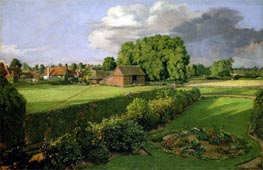
Golding Constable's Flower Garden 1815
Oil Painting
$589
$589
Canvas Print
$54.62
$54.62
SKU: COJ-2897
John Constable
Original Size: 33 x 50.8 cm
Borough Council Museums and Galleries, Ipswich, UK
John Constable
Original Size: 33 x 50.8 cm
Borough Council Museums and Galleries, Ipswich, UK
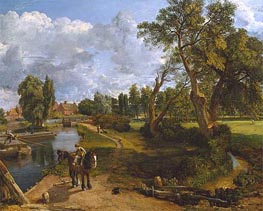
Flatford Mill (Scene on a Navigable River) c.1816/17
Oil Painting
$1540
$1540
Canvas Print
$66.22
$66.22
SKU: COJ-2898
John Constable
Original Size: 101.6 x 127 cm
Tate Gallery, London, UK
John Constable
Original Size: 101.6 x 127 cm
Tate Gallery, London, UK
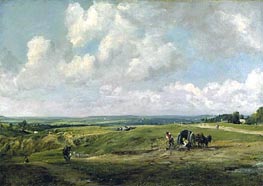
Hamstead Heath c.1820
Oil Painting
$1025
$1025
Canvas Print
$58.09
$58.09
SKU: COJ-2899
John Constable
Original Size: 54 x 77 cm
Fitzwilliam Museum, Cambridge, UK
John Constable
Original Size: 54 x 77 cm
Fitzwilliam Museum, Cambridge, UK
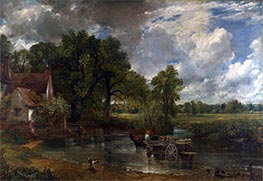
The Hay Wain 1821
Oil Painting
$1632
$1632
Canvas Print
$57.65
$57.65
SKU: COJ-2900
John Constable
Original Size: 130.2 x 185.4 cm
National Gallery, London, UK
John Constable
Original Size: 130.2 x 185.4 cm
National Gallery, London, UK
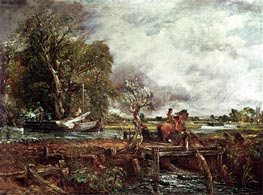
The Leaping Horse 1825
Oil Painting
$1558
$1558
Canvas Print
$61.71
$61.71
SKU: COJ-2901
John Constable
Original Size: 142 x 187.3 cm
Royal Academy of Arts, London, UK
John Constable
Original Size: 142 x 187.3 cm
Royal Academy of Arts, London, UK
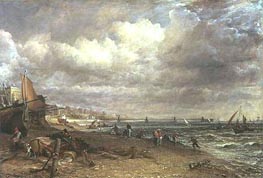
Marine Parade and Chain Pier, Brighton c.1826/27
Oil Painting
$1611
$1611
SKU: COJ-2902
John Constable
Original Size: 127 x 183 cm
Tate Gallery, London, UK
John Constable
Original Size: 127 x 183 cm
Tate Gallery, London, UK
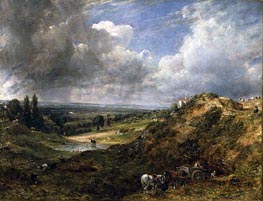
Hampstead Heath, Branch Hill Pond 1828
Oil Painting
$1397
$1397
Canvas Print
$63.67
$63.67
SKU: COJ-2903
John Constable
Original Size: 59.6 x 77.6 cm
Victoria and Albert Museum, London, UK
John Constable
Original Size: 59.6 x 77.6 cm
Victoria and Albert Museum, London, UK
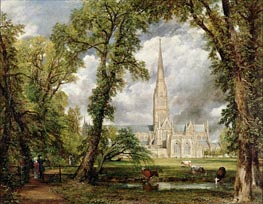
View of Salisbury Cathedral from the Bishop's Grounds c.1822
Oil Painting
$1866
$1866
Canvas Print
$64.42
$64.42
SKU: COJ-5064
John Constable
Original Size: 87.6 x 111.8 cm
Victoria and Albert Museum, London, UK
John Constable
Original Size: 87.6 x 111.8 cm
Victoria and Albert Museum, London, UK
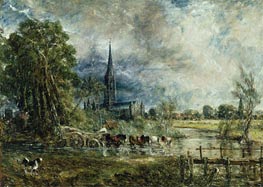
Salisbury Cathedral from the Meadows (Fording the ... c.1829/31
Oil Painting
$1578
$1578
SKU: COJ-5065
John Constable
Original Size: 135 x 188 cm
Guildhall Art Gallery, London, UK
John Constable
Original Size: 135 x 188 cm
Guildhall Art Gallery, London, UK
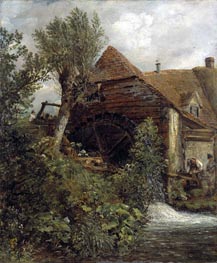
Watermill at Gillingham, Dorset c.1823/27
Oil Painting
$1289
$1289
Canvas Print
$67.73
$67.73
SKU: COJ-5066
John Constable
Original Size: 63 x 52 cm
Victoria and Albert Museum, London, UK
John Constable
Original Size: 63 x 52 cm
Victoria and Albert Museum, London, UK
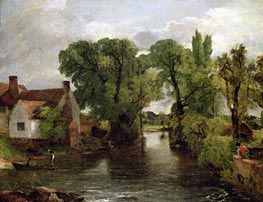
The Mill Stream c.1814/15
Oil Painting
$1340
$1340
SKU: COJ-5067
John Constable
Original Size: 71 x 91.8 cm
Borough Council Museums and Galleries, Ipswich, UK
John Constable
Original Size: 71 x 91.8 cm
Borough Council Museums and Galleries, Ipswich, UK
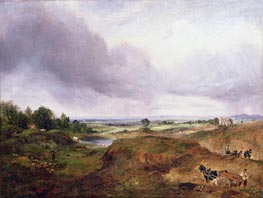
Hampstead Heath n.d.
Oil Painting
$1154
$1154
SKU: COJ-5068
John Constable
Original Size: unknown
Bury Art Gallery and Museum, Lancashire, UK
John Constable
Original Size: unknown
Bury Art Gallery and Museum, Lancashire, UK
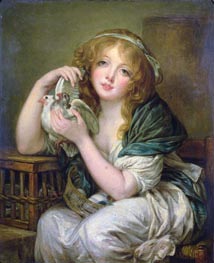
Girl with the Doves (after Greuze) n.d.
Oil Painting
$1397
$1397
SKU: COJ-5069
John Constable
Original Size: unknown
Private Collection
John Constable
Original Size: unknown
Private Collection
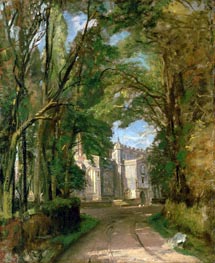
East Bergholt Church n.d.
Oil Painting
$935
$935
Canvas Print
$56.11
$56.11
SKU: COJ-5070
John Constable
Original Size: unknown
Private Collection
John Constable
Original Size: unknown
Private Collection
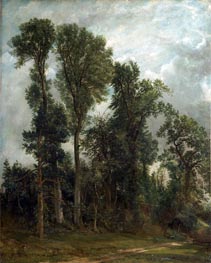
Trees at Hampstead 1821
Oil Painting
$1323
$1323
Canvas Print
$66.53
$66.53
SKU: COJ-5071
John Constable
Original Size: 91.4 x 72.4 cm
Victoria and Albert Museum, London, UK
John Constable
Original Size: 91.4 x 72.4 cm
Victoria and Albert Museum, London, UK